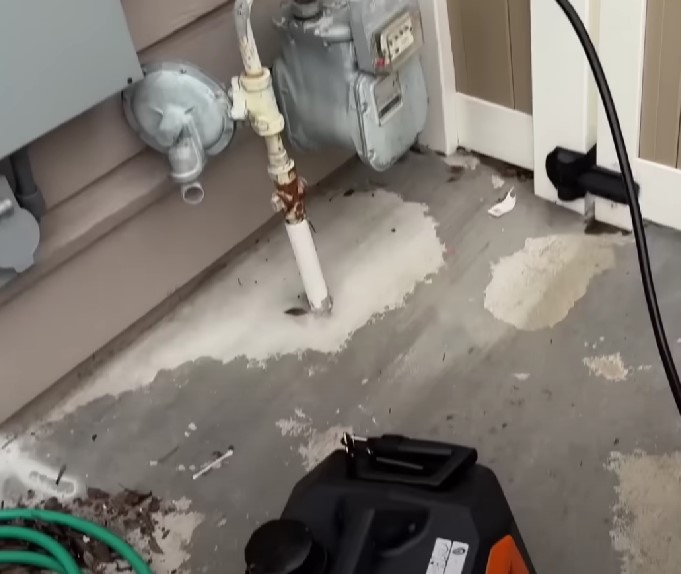Yes, natural gas generators can typically be converted to run-on propane with the appropriate conversion kit. These kits generally involve changing the fuel jets and adjusting the air-to-fuel ratio to ensure optimal combustion. It’s important to consult the generator’s manufacturer or a qualified professional for guidance for a safe and efficient transition.
In this article, we will explore the feasibility of such a conversion, the process involved, as well as the advantages and disadvantages of each fuel type.
Understanding Natural Gas and Propane Generators
Natural gas generators
- Natural gas generators run on methane, which is typically supplied through a gas line connected to the local utility infrastructure. These generators offer clean and efficient power generation.
- Natural gas generators are commonly used in residential, commercial, and industrial settings where a continuous and reliable power supply is needed.
Propane generators
- Propane generators use propane gas, which is stored in pressurized tanks. They are known for their portability and ability to provide a stable power source during emergencies.
- Propane generators are widely used in remote locations, off-grid living, and during power outages.
Factors to consider before conversion
- Before attempting any conversion, ensure that your generator is compatible with a propane conversion kit.
- Research and purchase a conversion kit specifically designed for your generator model.
- Check with local authorities and adhere to any safety guidelines and regulations related to fuel conversion.
How to Convert natural gas to Propane
- Preparing the generator: Begin by disconnecting the generator from any power sources and turning off the gas supply.
- Regulator assembly: Mount the new propane regulator assembly onto the generator following the kit’s instructions.
- Fuel hoses and connections: Connect the propane fuel lines to the regulator and the generator’s carburetor.
- Carburetor modifications: Adjust the carburetor to accommodate propane fuel according to the conversion kit’s specifications.
- Final adjustments and testing: Once the conversion is complete, perform a test run and make any necessary adjustments for optimal performance.

Benefits of Converting a Natural Gas Generator to Propane
- Increased fuel storage options: Propane can be stored indefinitely, making it a more versatile fuel choice.
- Longer fuel shelf life: Unlike natural gas, propane does not degrade over time.
- Enhanced portability: Propane generators can be easily transported due to the use of portable propane tanks.
- Reduced greenhouse gas emissions: Propane combustion produces fewer greenhouse gases compared to natural gas.
- Wider fuel availability during emergencies: Propane is often more readily available during natural disasters or power outages.
Potential Drawbacks of Conversion
- Cost of the conversion kit and professional installation: Converting a natural gas generator to propane requires an investment in a conversion kit, which can be costly depending on the make and model of the generator. Additionally, hiring a professional to perform the installation can further increase the overall cost of the conversion.
- Possible voiding of generator warranty: Modifying a generator, such as converting it to run on a different fuel type, may void the manufacturer’s warranty. It is crucial to review the terms and conditions of your generator’s warranty and consult the manufacturer if necessary before proceeding with the conversion.
- Reduction in generator efficiency: Propane has a lower energy density compared to natural gas, which means that a propane-powered generator may produce less electricity per unit of fuel than a natural gas-powered generator. This could result in a reduction in generator efficiency, potentially impacting the generator’s ability to power your appliances or equipment.
- Safety concerns and proper ventilation requirements: Propane is heavier than air and can accumulate in low-lying areas, creating a risk of explosion or fire if not properly ventilated. Converting a natural gas generator to propane necessitates proper installation and the implementation of adequate ventilation measures to ensure safety. Moreover, any leaks in the propane fuel system can pose a significant hazard, so it is essential to regularly inspect and maintain the generator and its fuel system after conversion.
Related Post:
- Problems with Converting Generators to Natural Gas
- What Size Generator Do I Need For 3 Bedroom House?
- Honda Generator Propane Conversion Reviews
Conclusion
Converting a natural gas generator to propane is a feasible option for those seeking the advantages of propane. Such as increased fuel storage options, longer fuel shelf life, enhanced portability, reduced greenhouse gas emissions, and wider fuel availability during emergencies.
However, it is essential to carefully consider the potential drawbacks, including the cost of the conversion kit and professional installation, the possible voiding of the generator’s warranty, reduced generator efficiency, and safety concerns related to proper ventilation.
Recent Posts
Yes, synthetic oil can generally be used in generators. It offers superior lubrication, improved resistance to temperature variations, and longevity compared to conventional oil, which can enhance...
In today's digital age, our dependency on computers and other electronic devices is undeniable. But what happens when a power outage occurs? This is where generators come in. However, is it safe to...
